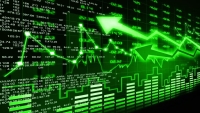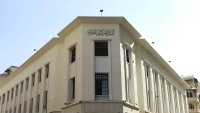Unleashing Chaos: Russian-Ukrainian War Escalates Climate Crisis and Sparks Global Energy Alarm
Wegdan Mohamed

Nearly a year and a half have passed since the outbreak of the Russian-Ukrainian war, which is escalating in its severity and repercussions day by day, affecting the world in terms of security, politics, and economy. However, the greatest danger that many have not yet realized is the catastrophic impact of this war on the climate change crisis, exacerbating it even further.
According to environmental experts, the most dangerous of these impacts lies in the global energy crisis caused by the Russian invasion, resulting in a slowdown in the transition to clean energy and a return to the use of environmentally harmful traditional energy sources. This is currently happening in Europe, where many countries have resorted to coal power generation due to gas shortages and soaring prices.
Estimates indicate that Europe's energy deficit currently stands at around 40 billion cubic meters of Russian gas, creating a supply gap with no easily available alternatives in the global market.
The situation is expected to worsen, with the imminent 2023-2024 winter casting a dark shadow over the continent, along with predictions of a new energy crisis in Europe. This presents an additional challenge imposed by the ongoing war in Ukraine and Russia's firm stance, further depleting energy reserves and intensifying inflationary pressures on the continent.
As for other lesser-known effects of the Ukrainian crisis on climate change, despite the significant efforts being made towards transitioning to a green economy, especially amidst escalating conditions and the ongoing war, it is expected to accelerate the shift to clean energy in the medium and long term. This is in the case of oil remaining above $150 per barrel in the long run. Although this may seem like a positive indicator, it actually poses a significant risk to the global economy, potentially leading to an unregulated green transition.
Another lesser-known impact of the Ukrainian crisis is the threat of further deforestation in the Amazon region. Brazilian President Jair Bolsonaro has exploited the Ukrainian war as an excuse to extract more potassium from the Amazon region and reduce reliance on Russian imports. This has accelerated deforestation, whether legally or illegally.
This pattern has led many experts to warn of an impending tipping point, where large parts of the rainforest will transform into dry savannas, changing weather patterns and releasing billions of tons of carbon dioxide into the atmosphere.
The Russian-Ukrainian war can also escalate the risks of environmental destruction. On the first day of the Russian invasion, gamma radiation was reported in the Chernobyl region at nearly 28 times the annual limit, while Ukraine operates fifteen nuclear reactors in four different locations.
Even if one of the reactors is damaged, a second Chernobyl disaster could occur, as debris and radiation from any attack can spread thousands of kilometers and lead to various health problems for citizens, not only in Ukraine but also in neighboring countries.
Despite the catastrophic effects we have highlighted, the reality is much worse, and the repercussions of the war continue to increase day by day as it persists with no signs of stopping. This necessitates the urgent need for international efforts to come together more seriously to bring an end to it.













